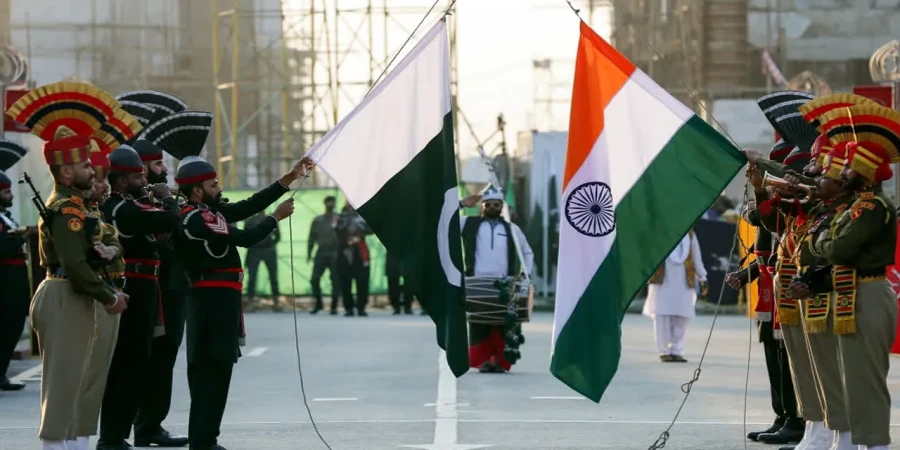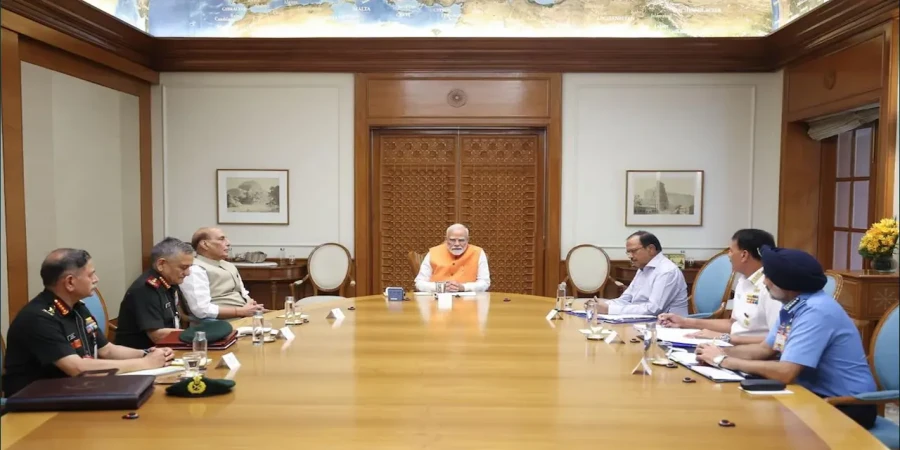
ছবি: Photo: Collected
India has taken a decisive step amid escalating tensions with neighboring Pakistan, announcing a complete ban on the import of all goods from the country. Citing concerns related to national security and public policy, the Indian government declared the prohibition effective immediately.
According to a report by NDTV, the ban extends to all direct and indirect imports originating from or routed through Pakistan. In addition, no Pakistani vessel will be allowed to dock at Indian ports. The notification was issued by the Ministry of Commerce and Industry, reinforcing New Delhi's growing diplomatic and economic assertiveness.
The official announcement stated that the import or transit of any goods produced in, manufactured in, or exported from Pakistan—whether freely importable or previously authorized—is now prohibited in the interest of India’s national security and broader policy considerations. This directive will remain in force until further notice. Any exception to the ban will require prior approval from the Indian government.
This is not the first time trade between the two countries has been disrupted. The Wagah-Attari land route, the only official land trade corridor between India and Pakistan, had already been suspended following the attack in Pahalgam. Despite the closure, limited indirect imports from Pakistan continued, primarily in the form of pharmaceuticals, fruits, and oilseeds. However, such exchanges had drastically declined in recent years.
A major factor behind the reduced trade volumes was the imposition of a steep 200% tariff on Pakistani goods by the Indian government following the Pulwama attack in 2019. As a result, Pakistani imports accounted for less than 0.0001% of India’s total imports in the fiscal year 2024–25.
In a further diplomatic move, India has reportedly approached the International Monetary Fund (IMF), requesting a review of its ongoing financial assistance program to Pakistan. This development comes in the wake of a recent deadly militant attack in Kashmir, which has further strained already tense relations between the two nuclear-armed neighbors.
Sources within the Indian government confirmed to Reuters that a formal request has been made to the IMF, urging the global financial body to reassess its lending to Pakistan. New Delhi's concern centers on the belief that such international financial support may indirectly bolster Islamabad in ways that pose risks to regional stability.
Pakistan, which has been navigating a prolonged economic crisis, has received significant assistance from the IMF in recent years. Last year, it secured a $7 billion loan package, and in March, the country received an additional $1.3 billion in climate-resilience financing.
Islamabad views this assistance as critical to stabilizing its $350 billion economy, particularly in light of soaring inflation, depleting foreign reserves, and persistent fiscal challenges. The Pakistani government has repeatedly stated that these loans have helped avert several imminent financial threats.
However, India’s efforts to block or at least delay further IMF disbursements highlight a deepening diplomatic confrontation that is no longer confined to the military or political sphere. New Delhi’s lobbying against IMF loans is seen as a strategic extension of its broader stance against Pakistan, especially following the latest surge in hostilities.
While officials in New Delhi have declined to publicly elaborate on their outreach to the IMF, sources confirmed that representatives of Prime Minister Narendra Modi’s government have expressed their reservations to the institution. India, through its diplomatic channels, has conveyed concerns regarding the potential misuse of international financial support by Islamabad.
The Indian government’s move to sever even the most limited economic ties with Pakistan underscores the extent to which relations have deteriorated. The twin approach—economic sanctions and international financial pressure—suggests that New Delhi is attempting to isolate Islamabad diplomatically and economically without engaging in direct military conflict.
As the situation unfolds, both countries remain on high alert, with no visible signs of dialogue or de-escalation. The international community, particularly institutions like the IMF, will likely be watching closely as India seeks to exert influence beyond its borders in a bid to reshape the regional balance of power.
repoter





